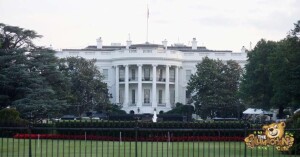Presidential campaigns are like a high-stakes game of chess, with candidates vying for the ultimate prize – the presidency. To outmaneuver their opponents, campaigns must strategically allocate their funds to maximize voter outreach, mobilize supporters, and ultimately compete in the electoral process.
So, where do these campaigns spend their money? Let’s take a look at some of the most common ways in which presidential campaigns allocate their funds:
1. Advertising and Media: A significant portion of campaign funds is typically spent on advertising, including television, radio, digital, and print ads. These ads aim to reach a wide audience and convey the candidate’s platform, policies, and messaging.
2. Campaign Staff and Consultants: Behind every successful campaign is a team of dedicated staff members. From campaign managers to communications directors to digital specialists, these professionals are essential to a campaign’s success. In addition, campaigns may engage external consultants for polling, media buying, and other specialized services.
3. Travel and Events: It’s no secret that presidential candidates spend a lot of time on the road. They hold rallies, town hall meetings, fundraisers, and other campaign events across the country. Campaign funds cover travel expenses, venue rentals, staging, and other event-related costs.
4. Campaign Materials: From buttons to bumper stickers, campaign materials are an essential part of any presidential campaign. These items are used to raise awareness and mobilize supporters.
5. Data and Technology: In today’s digital age, campaigns must have a strong online presence. That’s why they invest in data analytics, voter targeting tools, and digital platforms to manage supporter databases, conduct voter outreach, and optimize their digital advertising efforts.
6. Fundraising Expenses: Running a campaign is expensive, and fundraising is a crucial part of the process. There are costs associated with organizing fundraising events, donor outreach, and compliance with campaign finance regulations.
7. Legal and Compliance: Campaigns need to ensure compliance with complex campaign finance laws and regulations. They may hire legal counsel and compliance experts to navigate these requirements.
8. Polling and Research: To understand voter sentiment, track electoral trends, and refine campaign strategies, campaigns conduct internal polling and research.
9. Field Operations: Building grassroots support is essential for any presidential campaign. That’s why campaigns invest in field offices, volunteer recruitment, voter registration drives, and get-out-the-vote efforts.
10. Security: With the intense media coverage and public appearances, presidential campaigns often require security services to protect the candidate and campaign staff.
11. Debates and Primary Elections: Participating in primary elections and debates is a significant part of the campaign process. Funds may be allocated for debate preparation and logistics.
Overall, presidential campaigns strategically allocate their funds to maximize voter outreach, mobilize supporters, and manage operations efficiently. The allocation of campaign funds can vary based on the campaign’s priorities, fundraising capabilities, and the dynamics of the election cycle.
However, the use of campaign funds is heavily regulated by campaign finance laws in the United States. These laws aim to ensure transparency, accountability, and fairness in the electoral process. Here are key aspects of the laws governing the use of campaign funds:
Prohibited Uses of Campaign Funds:
– Personal Use: Campaign funds cannot be used for personal expenses or enrichment of candidates. This includes using funds for mortgage payments, groceries, clothing, vacations, or any other personal expenses unrelated to the campaign.
– Excessive Contributions: Campaign funds cannot be used to make excessive contributions to political parties or other candidates’ campaigns beyond the legal limits set by the Federal Election Commission (FEC).
– Unauthorized Expenditures: Campaign funds must be spent only on lawful campaign-related expenses. Any unauthorized expenditures not directly related to the campaign’s purpose are prohibited.
Permissible Uses of Campaign Funds:
– Campaign Expenses: Funds can be used for legitimate campaign expenses, including advertising, travel, staff salaries, polling, fundraising expenses, and other activities directly related to promoting the candidate and their platform.
– Compliance and Legal Services: Campaign funds can be used to hire legal counsel and compliance experts to ensure adherence to campaign finance laws and regulations.
– Office Space and Equipment: Funds can be used to rent office space, purchase equipment (e.g., computers, phones), and pay utilities for campaign operations.
– Campaign Materials: Funds can be spent on producing campaign materials such as signs, literature, buttons, and other promotional items.
– Event Expenses: Funds can cover expenses related to hosting campaign events, rallies, fundraisers, and town hall meetings.
Reporting and Disclosure Requirements:
– Disclosure of Expenditures: Campaigns are required to report all expenditures accurately and in a timely manner to the FEC. This includes itemizing expenses to provide transparency on how campaign funds are being used.
– Contributor Information: Campaigns must disclose information about their contributors, including their names, addresses, and occupations. This ensures that the source of campaign funds is transparent.
In conclusion, presidential campaigns are complex and expensive operations. Candidates must carefully strategize and allocate their funds to effectively communicate their message, mobilize supporters, and compete in the electoral process. While there are strict regulations governing the use of campaign funds, these laws ultimately aim to promote fairness and transparency in our democracy.

